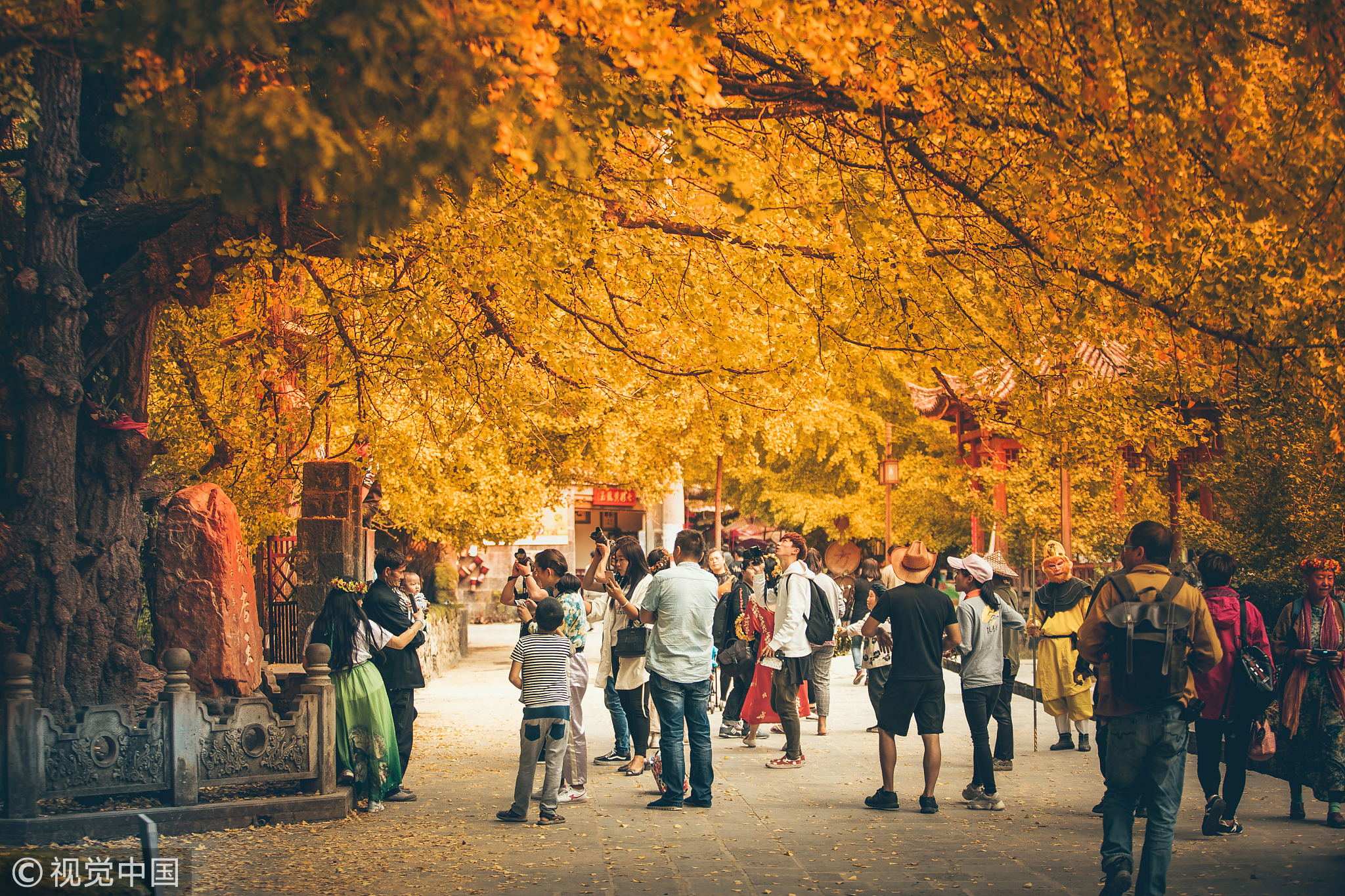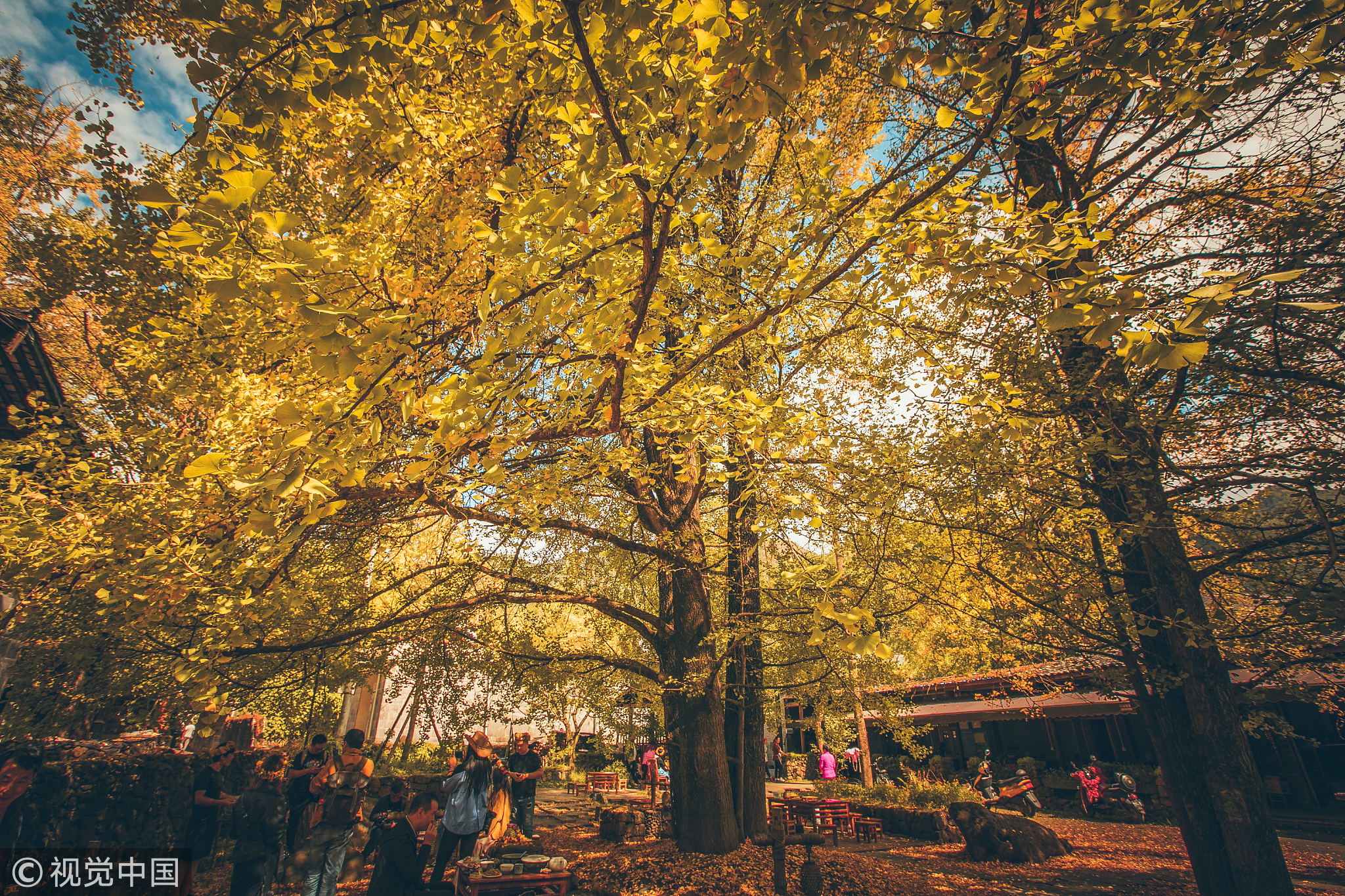
Travel
11:07, 17-Dec-2018
SW China's Jiangdong Village is a Ginkgo paradise
Updated
10:09, 20-Dec-2018
CGTN

The Jiangdong Village is surrounded by more than 30,000 ginkgo trees, including several dozen over 500 years old.
At the end of the year, the trees turn a beautiful golden brown and the scenery attracts thousands of tourists to the village, which is 40 kilometers from Tengchong City, southwest China's Yunnan Province.
In the old days, every newlywed couple in the village would plant a ginkgo tree in their courtyard or field. As the plants are known to grow incredibly slowly, the tree was expected to bear fruit when the couple got old, so they would be able to support themselves by selling the nuts. Ginkgo trees that can bear nuts are customarily handed down as family assets in the village.

Jiangdong Village of Tengchong City, southwest China's Yunnan Province /VCG Photo
Jiangdong Village of Tengchong City, southwest China's Yunnan Province /VCG Photo
The village used to be secluded and poor, but in recent years, it has seen tremendous transformation thanks to the development of eco-tourism built around the ginkgo trees.
To boost tourism, the local government implemented a comprehensive project in 2008 to enhance the village environment and infrastructure, allowing it to host visitors.
Yang Zhuying, 52, was among the earliest in the village to open a rural inn and a restaurant. She started the business in 2008, and manages it with her husband. Their children also help during the busiest season, when they can receive as many as 200 diners per day. Her family of five earns about 140,000 yuan (20,167 US dollars) from the business annually.
"The venture has become the main income source for our family," says Yang, who also sells local specialties, such as ginkgo nuts, to visiting tourists.

Jiangdong Village of Tengchong City, southwest China's Yunnan Province /VCG Photo
Jiangdong Village of Tengchong City, southwest China's Yunnan Province /VCG Photo
According to Huang Chaojin, the director of the local community committee, more than 150 "agri-tainment" businesses have been started in the village, and many villagers have opened shops selling specialties near their homes.
Last year, the total revenue generated by tourism in the village was 60 million yuan, and the average income of the villagers was 12,000 yuan, which is a lot higher than the surrounding areas, says Huang.
Source(s): China Daily

SITEMAP
Copyright © 2018 CGTN. Beijing ICP prepared NO.16065310-3
Copyright © 2018 CGTN. Beijing ICP prepared NO.16065310-3